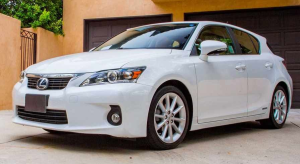Choosing a Pre-Owned Vehicle with Minimal Mileage: A Wise Decision
Posted Thursday, Nov 23, 2023

Many potential car owners tend to overlook the numerous advantages of opting for a used car with low mileage. The benefits extend beyond the appealing price point, encompassing various factors that make this choice excellent. Due to the rapid depreciation of new cars, selecting a used car with low mileage can offer comparable reliability and performance at a significantly lower cost. This includes considerations such as the initial purchase price, insurance expenses, and ongoing maintenance. This article will delve into these advantages, highlighting why choosing a used car with low mileage is a prudent decision.
The Five Key Benefits of Opting for a Low-Mileage Pre-Owned Vehicle
1. Cost Savings
One of the primary advantages of buying a used car with low mileage is the initial cost savings. New cars typically depreciate substantially in their first few years on the road, often losing up to 20% of their value within the first year. This means that a used car, even with low mileage, can be significantly cheaper than a brand-new counterpart of the same model.
Moreover, insurance costs are generally lower for used cars. Insurance premiums are determined based on the value of the car, so a cheaper car leads to cheaper insurance. This allows the buyer to enjoy further savings beyond the initial purchase price.
Finally, buying a used car with low mileage can also result in lower ongoing maintenance costs. Cars with high mileage often require more frequent repairs and maintenance to keep them in good condition. On the other hand, a used car with low mileage is less likely to encounter such issues, thereby reducing the potential cost of upkeep. Thus, when you factor in the cost of purchase, insurance, and maintenance, the overall cost of owning a used car with low mileage can be significantly less than that of a new car.
2. Asset Depreciation
Depreciation is an economic concept that describes the loss of value of an asset over time. In the context of cars, depreciation refers to the rate at which a car loses its value from the time of purchase. New cars often experience the highest rate of depreciation within the first few years of ownership. This high rate of depreciation means the value of the car decreases rapidly, often faster than the car loan is paid off, potentially leaving new car owners in a position where they owe more on the car than it's worth.
Purchasing a used car with low mileage can significantly mitigate the impact of this rapid depreciation. This is because the most substantial loss of value has already occurred before the second-hand car owner's purchase. Cars with lower mileage are generally worth more than those with higher mileage, primarily because the mechanical components have experienced less wear and tear. Therefore, a used car with low mileage often retains its value better than a new car or a used car with high mileage. This slower depreciation rate means you could sell the car for close to what you paid for it if you choose to sell within a few years of purchase.
3. Functionality
There's a common misconception that used cars, even those with low mileage, won't be able to match the performance of a brand new vehicle. This is far from the truth. Modern cars are designed and built to last, many claiming performance longevity that far surpasses their predecessors. A used car with low mileage can easily provide the same level of performance as a new car. First and foremost, the lower mileage indicates that the car hasn't been driven extensively, meaning less stress on the engine and other vital components. This equates to less wear and tear, and consequently, a performance that closely mirrors a new car.
It's important to consider that most updates manufacturers make to newer models are often cosmetic or related to in-car technology, rather than mechanical upgrades that significantly impact performance. For instance, if a car model has not undergone significant mechanical changes or upgrades in recent years, a used version of this model with low mileage will essentially provide the same performance as the new version.
Moreover, any potential performance issues a used car might have had are likely to have been addressed by the previous owner. This means that you're getting a car that has been maintained, and any bugs or problems have been ironed out. And let's not forget about the break-in period new cars require. The engine, transmission, and brakes of new cars need to be "broken in" before they reach optimal performance. With a used car, especially one with low mileage, you skip this phase and get to enjoy the vehicle's peak performance from day one.
4. Reliance
When it comes to reliability, used cars with low mileage can compete toe-to-toe with their brand new counterparts. Once again, the key factor here is the low mileage. A car's reliability is often directly proportional to its usage and care. A used car with low mileage indicates that the vehicle hasn't been overly stressed or worn down, thereby maintaining its reliability.
In modern times, due to advancements in automotive technology and manufacturing, cars are built to last longer. Today’s vehicles have longer intervals between scheduled maintenance and service, and their engines are designed to run for several hundreds of thousands of miles without major issues, provided they're well-maintained. A used car with low mileage means that most, if not all, of these miles are still available to the new owner.
A critical advantage of buying a used car is the availability of its reliability data. Unlike new cars, used cars have history and reliability data available for potential buyers to review. This data can provide peace of mind when it comes to the reliability of a used car, as it allows you to identify any recurring issues with the car model and how well it holds up over time.
By choosing a used car model with a proven track record of reliability and low mileage, you're essentially getting a vehicle that’s close to new in both performance and reliability, but at a significantly lower cost. It's a win-win scenario.
5. Environmental Sustainability
Buying a used car with low mileage is a more sustainable choice than purchasing a new car, and here's why. The production of a new vehicle consumes a significant number of resources including steel, rubber, glass, plastics, and various precious metals. Not to mention the energy used and the carbon emissions produced during manufacturing. By opting for a used car, you're not contributing to these production-related environmental impacts.
Another environmental advantage of used cars is that they've already passed through the period of highest emissions - the first few years of a car's life. During this time, emissions derived from production far outweigh those from driving. Thus, a used car has a lower carbon footprint.
Finally, the longer a vehicle is in use, the more we can maximize the environmental expenditure of its production. That is, the natural resources and energy consumed to produce the car are spread out over a longer period, making it more environmentally efficient.
By purchasing a used car with low mileage, you're not only getting a car that performs almost like a new one, but you're also making a choice that's better for the environment.
Closing Thoughts
At Auto Center of Baltimore we understand that purchasing a car is a big decision, and we want to help you make an informed one. Buying a used car with low mileage offers numerous advantages over buying a new car, from slower depreciation rates to cost savings and environmental benefits. These factors combined make it a smart choice for the savvy car buyer. So next time you're in the market for a vehicle, consider the advantages of a low mileage used car and make a choice that's both financially and environmentally responsible.

